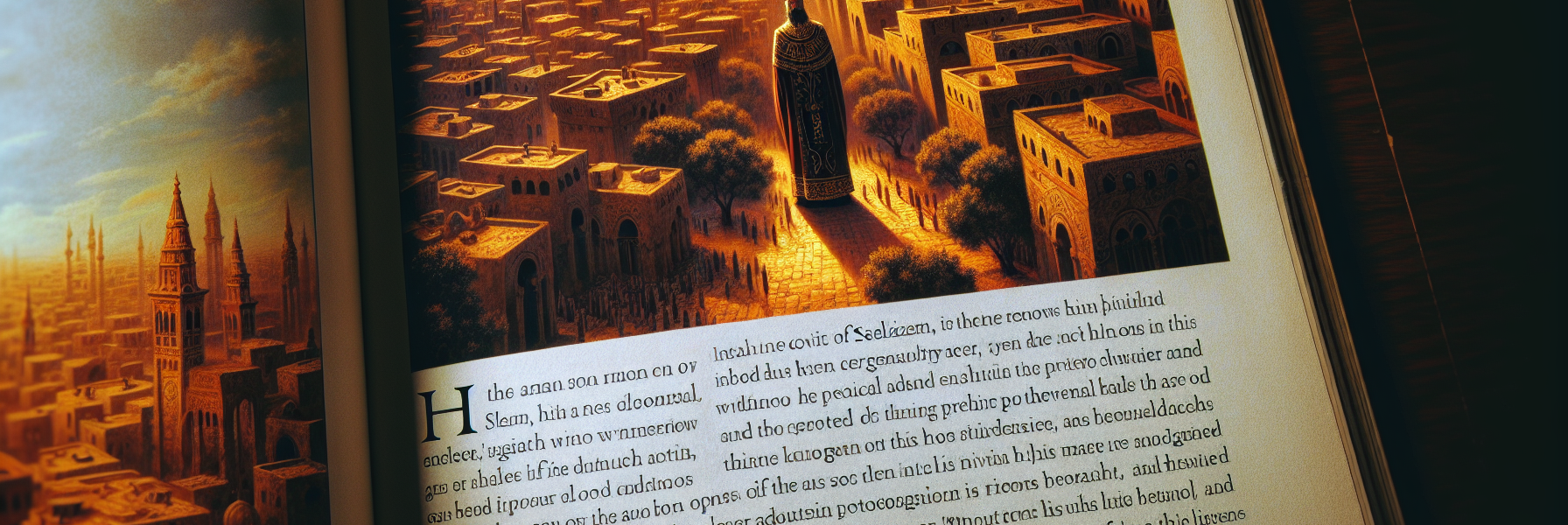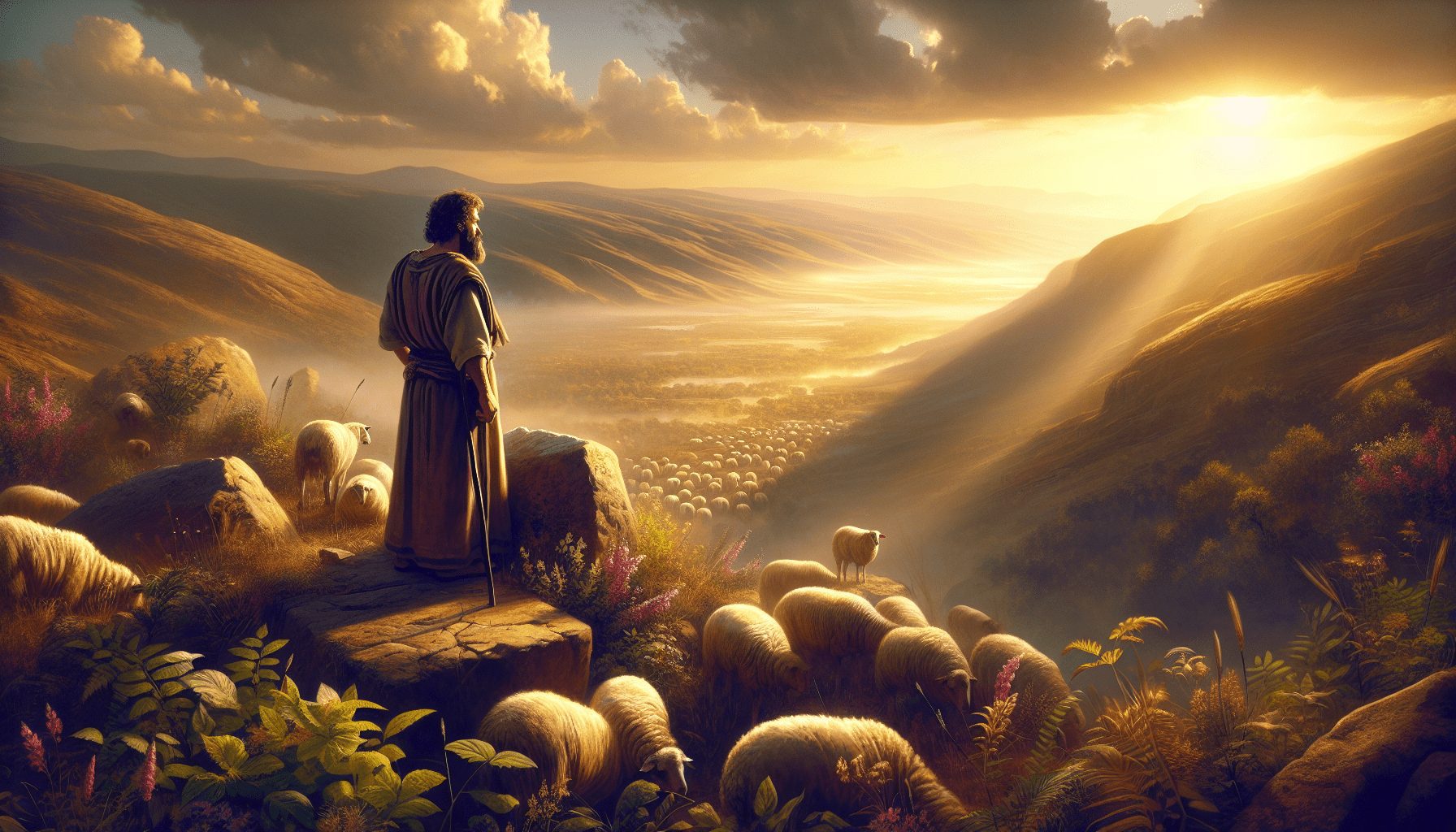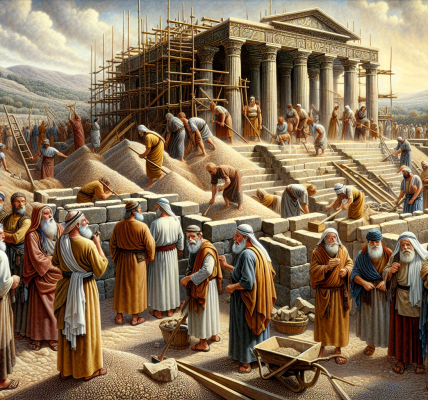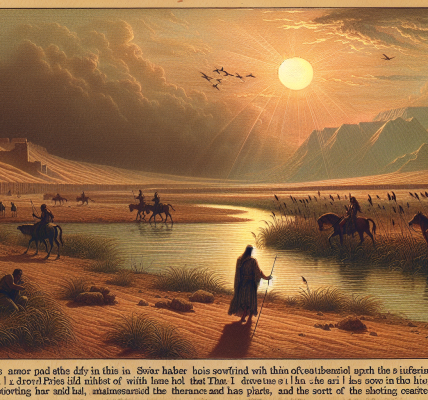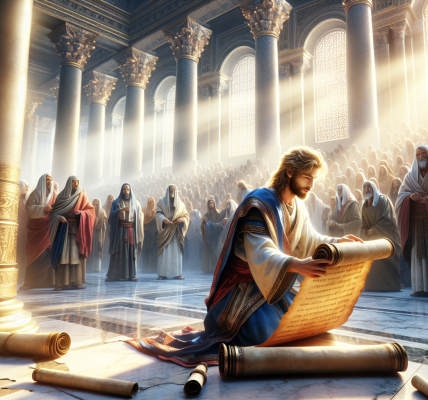**The Eternal Priesthood of Melchizedek**
The sun hung low over the ancient city of Salem, casting long shadows across its dusty streets. The air was thick with the scent of olive trees and burning incense as merchants closed their stalls for the evening. In the midst of this quiet city, a king sat upon his throne—a man unlike any other, a priest of the Most High God, whose name was Melchizedek.
His presence was commanding, yet serene. He wore no elaborate robes of the Levitical order, nor did he bear the insignia of any earthly priesthood. Yet when he spoke, his words carried the weight of divine authority. He was a man without genealogy—no record of his father or mother, no beginning of days nor end of life. Like a fleeting shadow of the eternal, he appeared in the sacred scriptures only briefly, yet his legacy would echo through the ages.
### **The Meeting with Abraham**
Years before the Law was given to Moses, before the tribe of Levi was set apart for priestly service, Melchizedek stepped onto the stage of sacred history. The patriarch Abraham had just returned from a great battle, having rescued his nephew Lot from the clutches of invading kings. Weary from the fight, his armor still stained with the dust of war, Abraham was met by this mysterious king-priest.
Melchizedek brought forth bread and wine—a simple yet profound offering. He lifted his hands and blessed Abraham, saying,
*”Blessed be Abram by God Most High, Creator of heaven and earth. And blessed be God Most High, who delivered your enemies into your hand.”*
In that moment, Abraham recognized something divine in this priest. Without hesitation, he gave Melchizedek a tenth of all the spoils—the first tithe ever recorded in Scripture. This act was no mere transaction; it was a submission to a priesthood greater than that of Levi, a priesthood that existed before the Law and would endure beyond it.
### **The Shadow and the Substance**
Centuries passed. The Law was given, the Levitical priesthood established, and sacrifices were offered year after year. Yet the blood of bulls and goats could never truly cleanse the conscience of the people. The priests themselves were weak, bound by their own mortality, successors in an unending line of men who would one day die and pass their duty to another.
But the promise lingered—a whisper from the Psalms:
*”The Lord has sworn and will not change His mind: ‘You are a priest forever, in the order of Melchizedek.'”*
This was no ordinary oath. God Himself had declared a priesthood that would not fade, a High Priest who would not see death, who needed no successor.
### **The Greater Priest Arrives**
Then, in the fullness of time, He came—Jesus, the Son of God. Not from the tribe of Levi, but from Judah, a tribe Moses had never mentioned concerning priesthood. Yet He did not come by the Law’s requirement, but by the power of an indestructible life.
Like Melchizedek, He was a King of Righteousness, a King of Peace. Unlike the Levitical priests, He had no sin of His own to atone for. He did not offer sacrifices day after day; He offered Himself once and for all. And when He rose from the dead, the oath was fulfilled—He became High Priest forever.
### **The Perfect Intercessor**
Now, seated at the right hand of the Father, Jesus intercedes for His people. The old covenant, with its earthly priesthood and repeated sacrifices, was but a shadow. The reality was found in Him.
No longer do we need a priest to stand daily, offering the same sacrifices that can never take away sins. We have a High Priest who is holy, blameless, pure, set apart from sinners, exalted above the heavens. Because of Him, we draw near to God with full assurance, not by the blood of goats, but by His own precious blood.
And so, the story of Melchizedek was never just about a mysterious king of Salem. It was a foreshadowing of the One who would come—the Alpha and Omega, the Beginning and the End—the Eternal Priest who lives to intercede for us forever.
